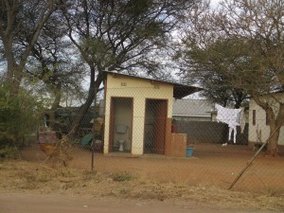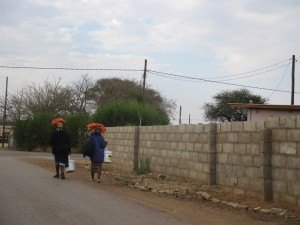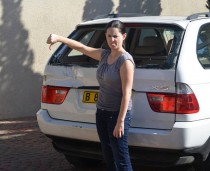The most African thing about my life every day is my commute home from work. Because of a large concrete road divider on the main road to my house (see photo above), you can’t turn directly from the street to get to my place. Instead, you have to turn off the road 1/2 mile earlier, wend your way through rutted back roads full of children and chickens, and make about three unmarked left turns and four right ones to finally get to my driveway. I realize this makes no sense in print and I really need to draw a diagram.
But this forced detour from the slick highway and exposure to a real middle-income African neighborhood reminds me that I’m not living in Phoenix or a downmarket Californian suburb, which is what most of the small capital city of Gaborone looks like.
Long ago the town made a conscious choice to implement “mixed housing” in Gaborone rather than class-segregated neighborhoods, so the nicer, bigger houses (of which mine is one, even though the rent is only a $1,800 a month) are just one street over from modest shacks and a few hovels. Gated houses with electric fences are a stone’s throw from dusty compounds with four or five tiny houses on one plot.













8 Comments